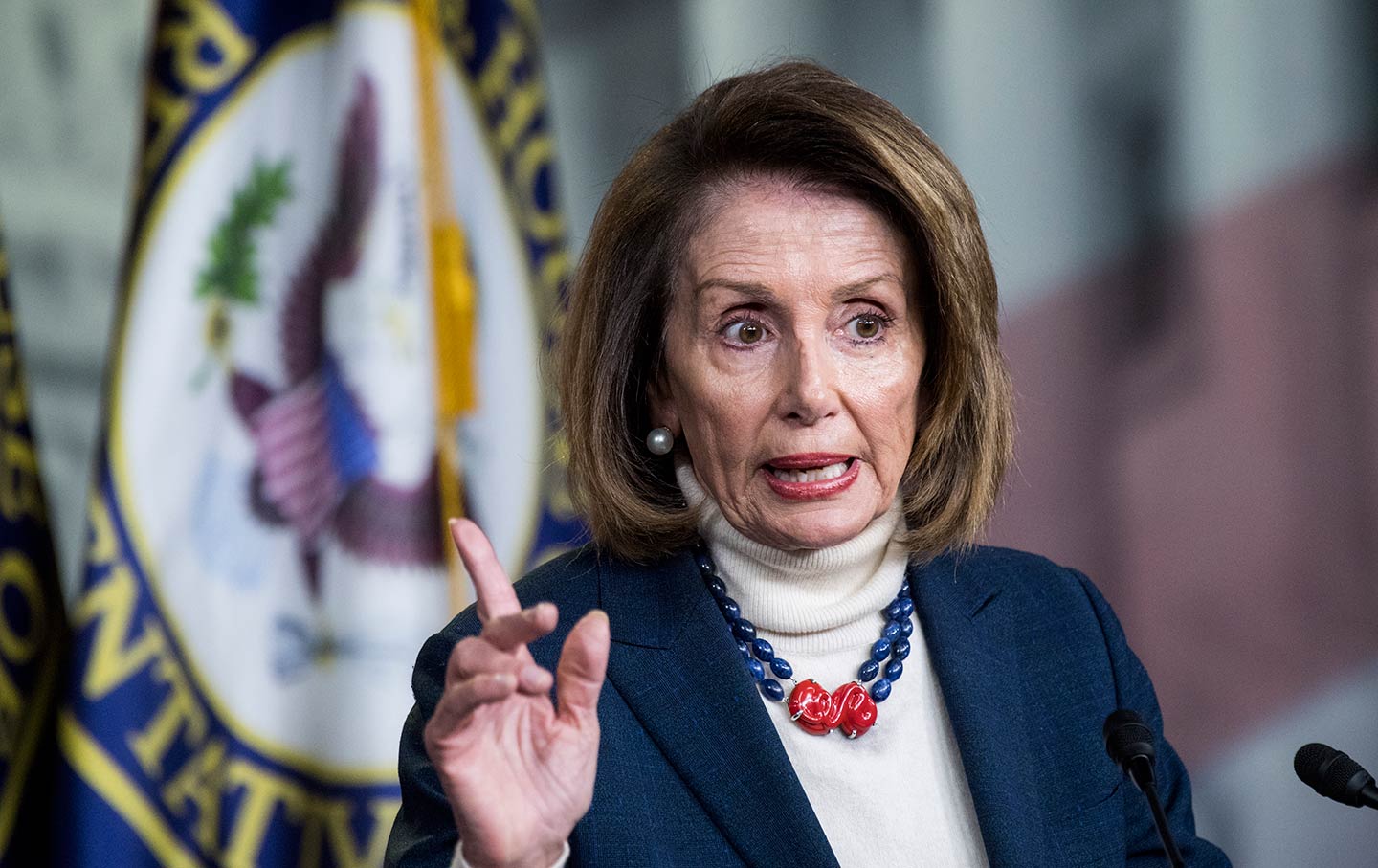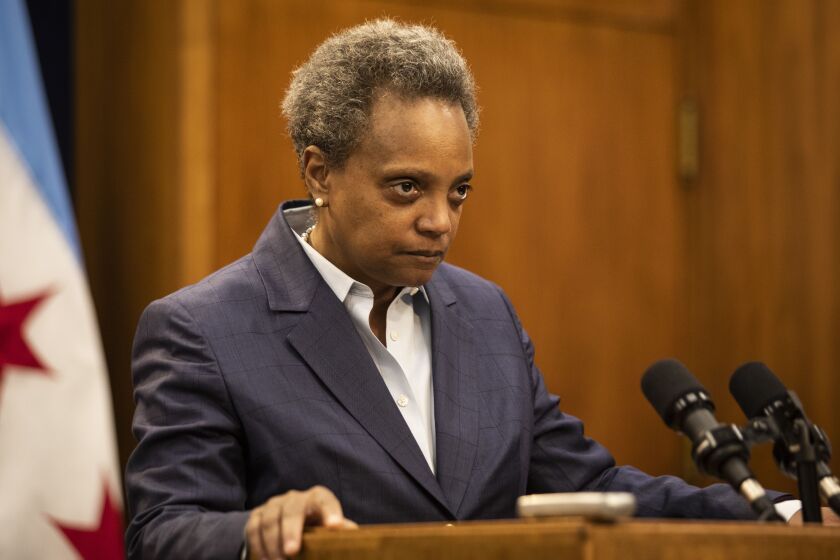In a development that has ignited political and legal shockwaves across the nation, former Florida Attorney General Pam Bondi has announced a sweeping investigation into several prominent Democratic figures, including Nancy Pelosi, Illinois Governor JB Pritzker, and former Chicago Mayor Lori Lightfoot, over allegations of deliberately targeting Immigration and Customs Enforcement (ICE) agents and obstructing federal law enforcement.
This investigation, which Bondi described as “one of the most important inquiries into public official misconduct in recent history,” raises profound questions about the balance between local autonomy, federal authority, and the rule of law in the United States. It is a case that promises not only high-stakes legal battles but also a deeper cultural debate about the role of law enforcement in immigration policy and the limits of political discretion.

The Allegations in Detail
Bondi’s office has claimed that the investigation centers on activities that allegedly occurred between 2019 and 2023, involving actions that went beyond the ordinary exercise of political discretion.
The charges under consideration include:
- Obstruction of federal proceedings (18 U.S.C. §1505) – officials allegedly created deliberate barriers to ICE operations.
- Conspiracy against federal officers (18 U.S.C. §372) – coordinated efforts that may have intentionally impeded federal law enforcement duties.
- Misuse of public funds – local and state resources allegedly used to facilitate interference with federal enforcement efforts.
According to Bondi, evidence under review includes internal communications, emails, encrypted messages, and whistleblower testimony suggesting that these officials coordinated with advocacy groups and local agencies to actively monitor, obstruct, or interfere with ICE agents’ movements and operations.
“This is about upholding the law, not political affiliation,” Bondi asserted during a press conference. “When public officials take actions that endanger the effectiveness and safety of federal law enforcement, it is our duty to investigate and hold them accountable.”
Sanctuary Cities, State Authority, and Federal Supremacy
At the heart of this investigation is a long-standing tension between federal immigration authorities and so-called sanctuary jurisdictions. These jurisdictions, including cities such as Chicago, San Francisco, and Los Angeles, have enacted laws and policies limiting cooperation with ICE. Advocates argue these measures are necessary to protect immigrant communities from unjust deportations and to encourage cooperation with local police without fear of federal retaliation.

However, critics, including Bondi, contend that such policies sometimes cross the line into deliberate obstruction of federal operations. Legal analysts note that the distinction between lawful sanctuary policies and illegal obstruction is subtle but critical.
“There is a constitutional question here,” said Professor Emily Thompson, a scholar of federalism at Georgetown University. “Federal law is supreme when it comes to immigration enforcement. If state or local officials intentionally impede federal agents, they may be liable for serious legal consequences.”
The investigation, therefore, sits at the intersection of legal authority, politics, and civil liberties — a triad that has historically proven volatile.
Political Implications and Polarization
The timing and targets of Bondi’s investigation have predictably fueled partisan reactions.
Democratic leaders denounced the probe as a politically motivated effort, pointing to Bondi’s ties to former President Donald Trump and her history as a partisan figure in Florida politics. A spokesperson for Nancy Pelosi called the allegations “baseless, politically charged, and defamatory,” emphasizing Pelosi’s record of defending constitutional protections and due process.
Similarly, Governor Pritzker and former Mayor Lightfoot have characterized the investigation as an attempt to intimidate officials who pursue progressive policies. Pritzker stated,
“Illinois will not be bullied into abandoning policies that protect vulnerable residents. These investigations are clearly designed to make headlines, not serve justice.”
Conversely, conservative politicians and commentators hailed the announcement as a long-overdue accountability measure. Republican lawmakers emphasized that federal agents tasked with enforcing the law should not face interference from elected officials pursuing political agendas.
“When public officials prioritize political ideology over the safety and rule of law, it is a threat to our entire legal system,” said Rep. Jim Jordan (R-OH).
Whistleblowers and Evidence Under Review
Central to the investigation are two unnamed whistleblowers reportedly possessing internal communications and documents that indicate a coordinated effort to impede ICE operations. One source allegedly provided emails linking city offices to activist organizations that tracked ICE movements, while another claimed access to memoranda detailing legal strategies designed to obstruct federal enforcement.

Bondi’s team has not disclosed these materials publicly, citing ongoing forensic analysis, but the potential significance is enormous. Experts suggest that, if authenticated, these documents could provide rare and incontrovertible evidence of direct interference by senior officials.
Legal scholars emphasize the challenge of distinguishing between lawful policy advocacy and illegal obstruction. A key question will be whether officials’ actions were motivated by genuine public policy concerns or by a desire to frustrate federal agents.
Broader Legal and Cultural Context
The implications of this investigation extend far beyond the individuals named. It touches on fundamental questions about:
- Federal supremacy vs. states’ rights – To what extent can local leaders defy or limit federal enforcement without crossing legal boundaries?
- Accountability for public officials – Does political office confer immunity from actions that obstruct federal operations?
- Immigration policy and civil liberties – How should law enforcement balance enforcement with protection of vulnerable communities?
Legal analysts warn that the outcome of Bondi’s probe could redefine the landscape for sanctuary policies across the country, potentially forcing other cities and states to reconsider the limits of their autonomy in immigration enforcement.
Professor Thompson added,
“If this investigation leads to convictions or formal findings, it will send a chilling message to any official considering similar policies. Conversely, if it fails, it could embolden more jurisdictions to resist federal law enforcement.”
The Human Dimension
While the legal and political stakes are immense, the human element cannot be ignored. ICE agents themselves, often caught between local resistance and federal expectations, face significant risks. Reports of leaked schedules, public harassment, and community backlash have created an environment of uncertainty and fear for some federal officers.
Bondi framed her investigation in part as a protective measure for these agents, asserting that public officials must “ensure the safety and effectiveness of those who uphold the law, regardless of personal or political beliefs.”
At the same time, immigrant communities in sanctuary cities have expressed concern that the investigation could be weaponized to justify harsher enforcement measures, potentially putting vulnerable populations at risk. The tension between law enforcement accountability and civil protections is thus stark and deeply charged.

Looking Ahead
Pam Bondi has indicated that her team intends to pursue subpoenas, gather further evidence, and potentially refer criminal charges to the Department of Justice if violations are found. Legal experts anticipate that any resulting prosecutions or rulings could set precedents affecting federal and state relations for years to come.
The investigation may also trigger Supreme Court review if constitutional questions about federal authority, obstruction, and states’ rights remain unresolved. Meanwhile, the political battlefield is likely to intensify, as partisans on both sides frame the inquiry in starkly opposing narratives: accountability versus political persecution.
Conclusion
The investigation led by Pam Bondi is more than a legal proceeding; it is a crucible in which the principles of law, governance, and civic responsibility are being tested. It asks whether public officials can pursue policy goals without crossing into obstruction, whether federal law can be effectively enforced in the face of local resistance, and how the balance between justice and politics is maintained in a deeply polarized nation.
As subpoenas are served and evidence analyzed, one certainty remains: the stakes are extraordinarily high, not only for the individuals named but for the broader American legal and political system. The coming months will likely determine whether this investigation becomes a landmark case in federal-state relations or another flashpoint in an ongoing ideological conflict over immigration, law enforcement, and the rule of law itself.
“The law is blind to political allegiance,” Bondi reminded the public. “Our obligation is to ensure it is upheld — fully, fairly, and without fear or favor.”
America now watches, divided yet attentive, as one of the most contentious inquiries in recent memory unfolds. Its outcome could reshape the way federal authority, local discretion, and public accountability coexist — or collide — in the years to come.


